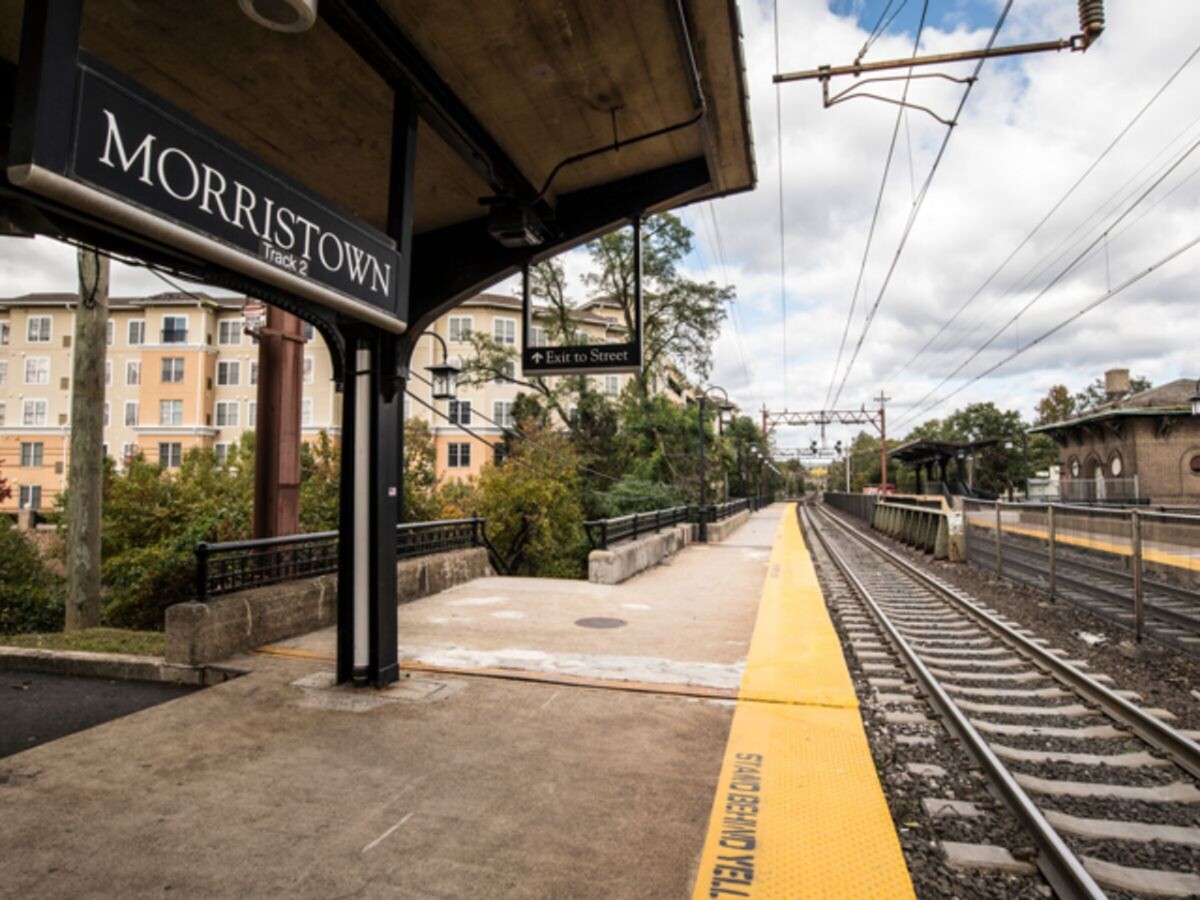Image


MORRISTOWN, NJ – Governor Phil Murphy today unveiled a significant investment in New Jersey's urban development by announcing $2.6 million in Fiscal Year 2025 Transit Village grants. This funding will aid eight municipalities across five counties in advancing development projects designed to enhance the quality of life for residents and promote sustainable, transit-oriented growth.
Morristown will receive $208k for Morristown Train Station Sidewalk Safety Improvements, specifically to replace the surrounding sidewalks.
The Transit Village Program is a collaborative, multi-agency smart growth initiative targeting municipalities with transit facilities—be it commuter rail, bus, ferry, or light rail—within their borders. The program encourages these municipalities to earn the "Transit Village" designation by developing plans for dense, mixed-use redevelopment near their transit facilities. The goal is to create vibrant, pedestrian-friendly neighborhoods where people can live, shop, work, and play without relying on automobiles.
“Investing in transit-oriented development revitalizes commuter hubs, promotes walkable neighborhoods, and generates economic growth,” said Governor Murphy. “These Transit Village grants will bolster communities by funding projects near transit facilities. By investing in transit-oriented projects, we will advance the revitalization of neighborhoods and improve quality of life, creating new job opportunities for families and commuters.”
Traditionally, the Transit Village Program allocates $1 million annually for grants. However, this year, the program received an additional $1.6 million from a supplementary $16 million appropriation designated for Grants-in-Aid programs. This windfall is specifically earmarked for the Transit Village Program, the Safe Streets to Transit Program, and Bicycle & Pedestrian Facilities/Accommodations.
“The New Jersey Department of Transportation and NJ TRANSIT are committed to working together to develop the public transportation system of the future,” NJDOT Commissioner and NJ TRANSIT Chair Fran O’Connor said. “Under Governor Murphy and the Legislature’s leadership, the extra funds allocated to the Transit Village program will help modernize and redevelop areas within walking distance of our transit facilities to better serve New Jersey residents and visitors.”
Benefits of the Transit Village Designation
New Jersey boasts 35 municipalities that have earned the Transit Village designation. These municipalities enjoy several benefits, including:
Each designated municipality can submit one application per year for funding projects located within a half-mile radius of their transit facility. Projects are awarded on a competitive basis, with consideration given to proximity to transit, walkability, bicycling infrastructure, project necessity, and equity criteria aimed at benefiting low-income and minority populations.
While the specific eight municipalities receiving the FY2025 grants have not been disclosed in this announcement, the funding is expected to catalyze a range of projects. These may include:
Tax Burden and Equity
One of the significant advantages of the Transit Village Program is its ability to enable local governments to reduce or eliminate reliance on local property taxes for funding development projects. This alleviates the financial burden on residents while promoting equitable growth.
The Transit Village Program represents a collaborative effort among multiple state agencies, including the New Jersey Department of Transportation, NJ TRANSIT, the Department of Community Affairs, and others. This interagency cooperation ensures that projects are well-coordinated and align with broader state objectives.
The increased funding and continued support for the Transit Village Program underscore New Jersey's commitment to smart growth and sustainable living. By focusing on transit-oriented development, the state aims to reduce traffic congestion, lower carbon emissions, and create more livable communities.
How Residents Will Benefit
The projects funded by these grants are expected to have a tangible impact on residents' daily lives:
Governor Murphy's announcement marks a significant milestone in New Jersey's journey toward smart, sustainable growth. The $2.6 million investment is not just about bricks and mortar; it's about building communities that are resilient, inclusive, and prepared for the future.
About the Transit Village Program
The Transit Village Program is a New Jersey initiative that encourages municipalities to redevelop areas around transit facilities into mixed-use neighborhoods with a focus on sustainability and reduced car dependency. For more information about the program and its impact, visit the New Jersey Department of Transportation website.
For further details and updates on the specific projects and municipalities receiving the grants, stay tuned to our continuing coverage.